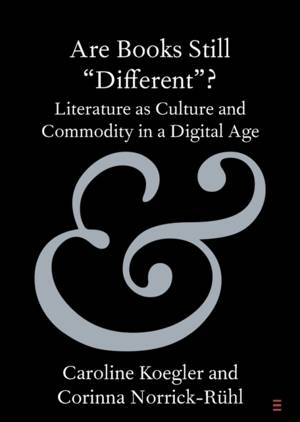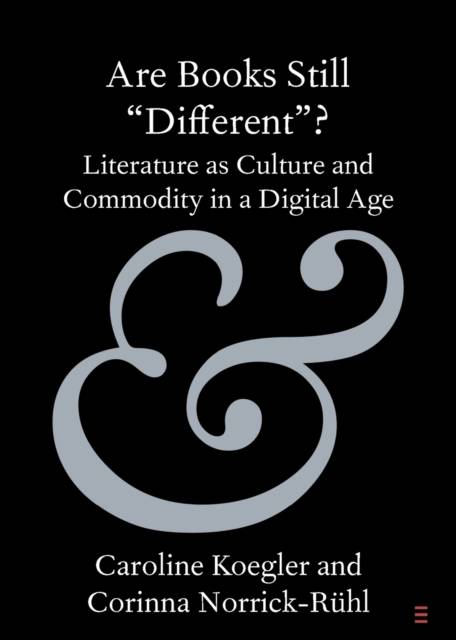
- Afhalen na 1 uur in een winkel met voorraad
- Gratis thuislevering in België vanaf € 30
- Ruim aanbod met 7 miljoen producten
- Afhalen na 1 uur in een winkel met voorraad
- Gratis thuislevering in België vanaf € 30
- Ruim aanbod met 7 miljoen producten
Zoeken
Are Books Still "Different"?
Literature as Culture and Commodity in a Digital Age
Caroline Koegler, Corinna Norrick-Rühl
€ 25,95
+ 51 punten
Omschrijving
The famous 1962 precedent at the Restrictive Practices Court of the United Kingdom, 'Books are different, ' is still the reasoning behind many cultural policies around the world, building on longstanding assumptions surrounding 'the book'. As this suggests, the 'difference' of the book as a unique form of cultural (rather than economic) production has acquired a powerful status. But are books still different? In (somewhat provocatively) asking this question from a network-oriented and interdisciplinary perspective (book studies/literary studies), this Element inquires into the notion of 'difference' in relation to books. Challenging common notions of 'bibliodiversity, ' it reconsiders the lack of diversity in the publishing industry. It also engages with the diversifying potentials of the digital literary sphere, offering a case study of Bernardine Evaristo's industry activities and activism, the Element concludes with thoughts on bookishness, affect and networked practice. This title is also available as Open Access on Cambridge Core.
Specificaties
Betrokkenen
- Auteur(s):
- Uitgeverij:
Inhoud
- Aantal bladzijden:
- 75
- Taal:
- Engels
- Reeks:
Eigenschappen
- Productcode (EAN):
- 9781108987127
- Verschijningsdatum:
- 23/02/2023
- Uitvoering:
- Paperback
- Formaat:
- Trade paperback (VS)
- Afmetingen:
- 127 mm x 178 mm
- Gewicht:
- 104 g

Alleen bij Standaard Boekhandel
+ 51 punten op je klantenkaart van Standaard Boekhandel
Beoordelingen
We publiceren alleen reviews die voldoen aan de voorwaarden voor reviews. Bekijk onze voorwaarden voor reviews.











